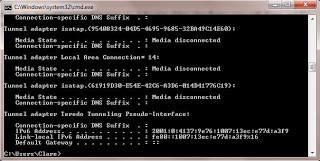Selling Software and Selling Ebooks
 Back in the dawn of the personal computer era, in the mists of time when floppys were really floppy, and PCs ran on command line DOS prompt, people bought their software packaged in pretty boxes off the shelf in gleaming retail establishments such as CompUSA and Egghead. Installation consisted of copying files into arcane locations and hand-tweaking .ini files. A software developer needed pretty big pockets to not only write the software, but get the media manufactured, the user guides printed, and everything packaged and distributed to retail outlets. In other words, a major outlay of cash or a contract from IBM [which was how Microsoft started].
Back in the dawn of the personal computer era, in the mists of time when floppys were really floppy, and PCs ran on command line DOS prompt, people bought their software packaged in pretty boxes off the shelf in gleaming retail establishments such as CompUSA and Egghead. Installation consisted of copying files into arcane locations and hand-tweaking .ini files. A software developer needed pretty big pockets to not only write the software, but get the media manufactured, the user guides printed, and everything packaged and distributed to retail outlets. In other words, a major outlay of cash or a contract from IBM [which was how Microsoft started].Enter the Internet And Shareware
The Internet changed everything in the early nineties. This was before WWW, but forums such as Compuserve and usenet allowed ordinary people to hook up with developers through newsgroups. People began writing code and sharing it with others, and the "shareware" industry commenced.
Shareware works on the concept of providing code for free, either for a limited number of features, or a limited time period. The user tries the code, and if he or she finds it useful, he'll pay to either unlock additional features or pay to use it after the trial period was over. Shareware allowed developers and programmers to bypass the retail distribution channels and middlemen who controlled the flow of software to retail establishments. Programmers could market directly to their end customers. Many successful programs, games, and applications, too numerous to name, had their roots in shareware.
What about Books?
What is an e-book but a piece of encoded data? So why has it taken the publishing industry so long to transform like the software industry did twenty years ago? Just a year ago, people lounged at Barnes and Noble and Borders, sipping latte and thumbing through massive tomes of dead trees. A would-be author needed the support of publishing companies to upfront the outlay of money required for printing dead trees, distribution and marketing.
In less than five years since the Kindle was released and the concept of ebooks popularized, authors have turned to the shareware concept to market their books. Amazon's "Look Inside" feature is exactly the same as sampling before buying. Because of this ebook revolution, readers can browse hundreds of books, looking inside with a single click and have instant fulfillment to either purchase or delete. The middleman (other than Amazon) is cut out, and authors can spread their wares in front of the customers and let them vote with their "clicks."
And just as Egghead Software, Circuit City and CompUSA retail stores have gone by the wayside, so has Borders, Waldenbooks and Crownbooks. As for the music industry... same story. Information in electronic format will trump physical media in terms of cost, distribution, and direct marketing to the end-user.
 What do you think? Do you still love the feel of paper books? When was the last time you bought a piece of software in a pretty cardboard box with a DVD? How about music? When was the last CD you bought? The last time you went to the drugstore to get your photos printed? Are there things too precious to be replaced with bits and bytes?
What do you think? Do you still love the feel of paper books? When was the last time you bought a piece of software in a pretty cardboard box with a DVD? How about music? When was the last CD you bought? The last time you went to the drugstore to get your photos printed? Are there things too precious to be replaced with bits and bytes?
Published on March 25, 2012 00:01
No comments have been added yet.



